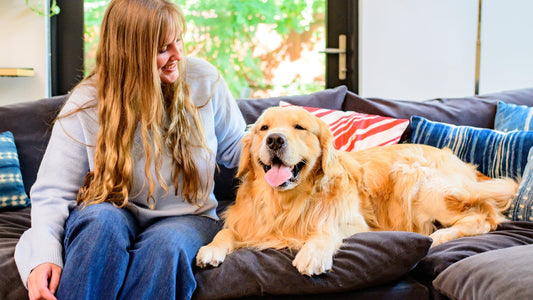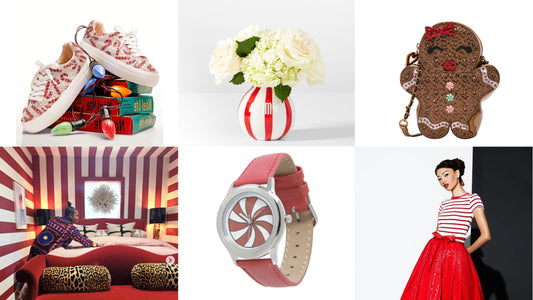Black Friday. Do you think of shopping sprees? At Wondercide, sure, we have Black Friday sales, but we’re all about turning it into something more meaningful—like giving a little extra love to black pets waiting for their forever homes. Sadly, sometimes black cats and dogs get stuck with unfair reputations. From black cats being labeled as bad luck to black dogs being typecast as aggressive in movies, these stereotypes can make it harder for them to get adopted.
It’s time to change the narrative. Here are all the reasons to celebrate darker-coated pets and help them get the attention they deserve. Let’s shine a light on these amazing animals and bust those old myths together!
Debunking myths and superstitions about black pets: Why it’s time to adopt without superstition.
Did you know that some outdated myths and superstitions about darker-furred pets might be keeping them from finding homes? The American Society for the Prevention of Cruelty to Animals (ASPCA) highlights how these misconceptions contribute to adoption challenges. But don’t worry—Wondercide is here to bust those myths and show why black cats and dogs are just as lovable as any other pet!
Myths about black cats (and why they’re totally wrong).
Myth: Black cats are bad omens.
The Truth: This idea dates back to the 13th century, when black cats were unfairly linked to witchcraft and evil. Over time, pop culture reinforced the myth, connecting black cats to Halloween and misfortune.
Reality Check: In many cultures, black cats are considered lucky! Sailors in the 19th century believed black cats brought good fortune, and their dark coats even helped them survive in the wild by blending into the night.
Myth: Black cats are linked to witches and evil.
The Truth: Movies and stories often pair black cats with witches, but this is just fiction.
Reality Check: Breeds like the Bombay black cat are celebrated for their striking yellow eyes and affectionate personalities. Far from evil, they make wonderful, loving companions.
Myths about black dogs (and why they’re nonsense).
Myth: Black dogs are aggressive or dangerous.
The Truth: Films and books often depict black dogs as symbols of danger, like "The Grim" in Harry Potter and the Prisoner of Azkaban or vicious protectors of villains in other stories.
Reality Check: A dog’s behavior has nothing to do with its coat color. Black dogs are just as friendly, loving, and trainable as their lighter-coated peers.
Myth: Black dogs are unapproachable or scary.
The Truth: Black is a color often associated with darkness or wickedness, which unfairly impacts how some people perceive black dogs.
Reality Check: These superstitions are entirely baseless. Black dogs are loyal, affectionate, and often have a glossy coat that makes them stunningly beautiful.
Let’s leave these myths in the past.
Every pet, regardless of its color, deserves a loving home. Black cats and dogs aren’t unlucky—they’re just waiting for someone to see their charm. When you’re ready to adopt, don’t let outdated superstitions hold you back from finding your perfect furry companion.

Initiatives we love that are helping black pets find homes.
We’ve been hearing about various initiatives to boost adoptions, and there are so many ideas that we love in helping black pets find loving families. Examples abound!
Canine Colorado magazine used DelaFoto to photograph adoptable black pets, and the magazine featured black dogs front and center in their 5th-anniversary edition. Together, they’ve proven that photographing dark pets is not only possible but fabulous!
The Humane Society started the “Black Dog Club” where black dog adopters would receive a t-shirt and six months of black dog playdates with other pet families hosted by the Humane Society. The shelter animal behavior manager, Linda Campbell, stated that they no longer have trouble adopting out black dogs!
In addition, the Animal Humane Society has set up the third largest animal shelter in the U.S., stationed in Minneapolis. Black cats and dogs are transported to this larger shelter from different southern states, which increases their chances of being adopted. The more people who have access to the shelter, the more likely the pets will be to find their forever family.

We also love how the San Diego Humane Society offers promotions for black pets to encourage their adoption in their shelters all over Southern California. San Diego has abandoned their tradition of banning black cat adoptions the week before Halloween. This practice was originally put in place out of fear that the adopted cats would be used for satanic rituals, which has since been disproven.
Shelters have found that hosting “Meow Mixers” and “Tuxes and Tails” events helps bring attention to black pets and their struggles with adoption. These themed events are just one creative way to showcase the darker-coated pets while drawing attention to Black Cat and Dog Syndrome. Other people have hired local photographers to take professional pictures of black animals for their adoption profiles. Some shelters have lightened the colors of their walls to help their black animals stand out and photograph better.

One of the largest communities in the world, Taylor Swift fans, has taken their own initiative to help black pets. Swifties have started a trend on X called #SwiftiesForBlackDogs to encourage their adoption and bring attention to Black Dog Syndrome. The fad began after the animal rescue Secondchance.org renamed 600 of their black dogs ‘Taylor Swift’ in hopes that it would entice adopters. Taking advantage of Taylor Swift’s impactful name as the biggest artist in the world, the rescue heard her song, ‘The Black Dog' and ran with it. Released in April 2024, the song refers to a bar called The Black Dog—not an actual furry animal—though fans have embraced a new meaning to support black pets.
How can you help?
Take a cue from the Swifties and use your social media superpowers to make a difference! Many people—whether they have pets or not—don’t realize the challenges black cats and dogs face in finding homes. By sharing what you’ve learned, you can help shine a light on an issue that’s often overlooked.
Community engagement is everything in today’s connected world. A single post, story, or tweet could inspire your friends and followers to see these pets in a whole new way. And if you have room in your home and heart, find a black pet to adopt today. Together, we can debunk the myths, spread the love, and make sure no black-coated furry friend gets left behind. Let’s make it happen!




